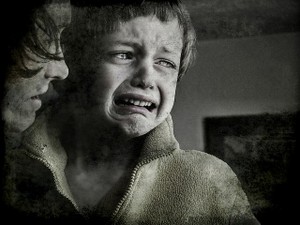Although you’d always want your child to tell you about getting bullied so you could help put a stop to it, too often, children remain silent about what they experience out of the house and suffer alone with some very un-childlike burdens.
Bullying is a common experience for our children - about 1 in 3 kids will be the victim of bullying during childhood1 - but though ‘normal’ in its frequency of occurrence we should never think of being bullied as a normal or necessary part of the childhood experience. Bullying is dangerous and the victims of bullying suffer serious consequences that can, in some cases, persist into adulthood.
Research shows that when authorities and peers get involved, the bullying usually stops2, but too often, parents don’t even find out about the bullying until great damage is already done. Learn the warning signs that point towards a bullying problem and you’ll be ready to intervene much quicker and you’ll save your child a lot of unnecessary pain and suffering.
Warnings Signs of Bullying
In no particular order
- Suddenly losing interest in school or suddenly developing an aversion to going to school
- Coming home from school with ripped clothing or missing possessions
- Coming home from school with cuts and bruises that aren’t easily explained away
- Suffering from insomnia, nightmares or bedwetting
- Frequent stomach aches or headaches
- Comes home from school starving, as if she hadn’t eaten lunch (bullies may extort food or lunch money from their victims)Suddenly starting to talk very badly about peers at school
- Comes home from school bursting to use the bathroom (as if he’d been too scared to be alone in the school bathroom and at the mercy of a bully)
- Having few friends at school, or no friends at all
- A sudden decline in school performance
- Taking an unusual route to school Seeming anxious about school, or when asked about school
- A sudden change in overall mood – becoming more withdrawn, sadder, etc.
If you see your child’s behaviors displayed within the list above, get informed about the realities of bullying and talk to your child about what’s really going on. You can’t fight your child’s battles for her, but there are some battles no child should have to fight at all. If you find your child does endure.
- References
Page last updated Jun 26, 2011


